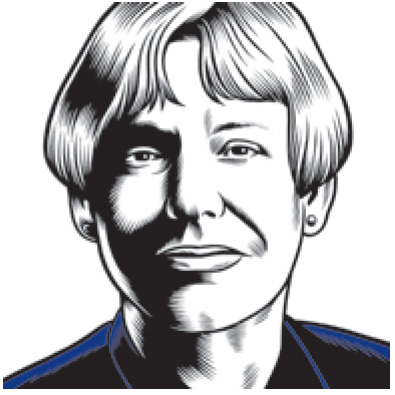Karen Armstrong is best known for her writing on religion. A History of God: The 4,000-Year Quest of Judaism, Christianity and Islam is her most popular book, but she has written twenty-two others, as well as scores of articles on comparative religion and religious themes, including a memoir that details her experiences as a young Catholic nun in England, and why she left the order. In 2008, Armstrong won a $100,000 TED Prize. She used the opportunity to facilitate an online charter for a universal moral code based on the Golden Rule, which she called the Charter for Compassion. The Charter was has been affirmed by over seventy thousand people.
Her most recent book is Twelve Steps to a Compassionate Life, which I came upon around the time I began my studies in theology (though I am not a religious person), shortly after witnessing a friend die. A priest who was present brought such a sense of compassion to the room, I left the experience thinking that doing something like that would be the best thing I could do. Armstrong’s book isn’t so much a book about religion, though it draws from various religious traditions. It is practical and direct, and she treats the state of noncompassion as the product of our addiction to “pet hates.” The twelve steps are a guide to quitting those addictions. She acknowledges that it’s hard to figure out not how to be nice, but how to be kind.
—Lauren Bride
I. ONE MUST FALL SILENT
THE BELIEVER: The role of language in your work seems very important. You have talked about the failings of language to describe big, transcendent experiences, and you say that theology must be read as a poetry. What’s the act of writing like for you?
KAREN ARMSTRONG: Writing is always a struggle. It’s very, very hard work, and it is frustrating at times, and it takes a long time to get things right. My first degree was in English language and literature and the study and meaning of words—a very detailed study of how words have changed and how our language has grown over the centuries. So language is very important. But there comes a time when one must fall silent, and that is where a lot of modern God-talk falls down, because people think that they can say that “He”—stupid pronoun—wants and thinks and forbids and hates. We should take a lesson out of the lives of the prophets. In the Hebrew bible there is a motif in the lives of all the prophets: they all have difficulty speaking. Moses has a speech impediment—
BLVR: “Take my brother, please!”
KA: Yes, his brother has to...
You have reached your article limit
Sign up for a digital subscription and continue reading all new issues, plus our entire archives, for just $1.50/month.
Already a subscriber? Sign in





